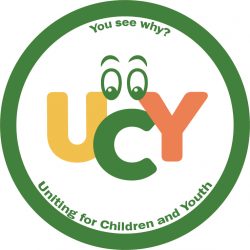Question 4 – Zone 7 Response
Contents
The Question in brief
Response from:
– Kim Woods
The Question in Brief
In your opinion, is equitable, inclusive education important? Why or why not?
Kim Woods
Yes, studies demonstrate that equitable, inclusive education is important.
Inclusive education is a way of thinking about how to be creative to make our schools a place where all children can participate. Creativity may mean teachers learning to teach in different ways or designing their lessons so that all children can be involved.
As a value, inclusive education reflects the expectation that we want all of our children to be appreciated and accepted throughout life.
Beliefs and Principles
• All children can learn
• All children attend age appropriate regular classrooms in their local schools
• All children receive appropriate educational programs
• All children receive a curriculum relevant to their needs
• All children participate in co-curricular and extracurricular activities
• All children benefit from cooperation, collaboration among home, among school, among community
(From Best Practices for Inclusion, New Brunswick Department of Education, 1994)
Question: How have you personally demonstrated your commitment to inclusive, equitable education?
Answer: I had the opportunity to develop and lead the Mental Health and Addictions Nurse Program in school boards across the province of Ontario. In this role I collaborated with school boards, teachers and community-based organizations to support students in their early struggles with mental health and addictions. I supported the development of school board strategies, participated in health care system planning, and collaborated with community health partners to ensure consistent support for children and youth across the province.
This role allowed me the opportunity to work with children and youth to ensure their success in the classroom as well as supporting their health and wellbeing. By providing inclusive, safe learning environments, children and youth are able to be part of their community and develop a sense of belonging and become better prepared for life in the community as children and adults.
It provides better opportunities for learning; children with varying abilities are often better motivated when they learn in classes surrounded by other children. Successful inclusion attempts to develop an individual’s strengths. It fosters a culture of respect and belonging and provides the opportunity to learn about and accept individual differences. Lastly, it provides all children with opportunities to develop friendships with one another; friendships provide role models and opportunities for growth.
Question: Would you vote in favour of an initiative similar to the DDSB’s Equity and Diversity Strategic Framework?
Answer: Yes.
Question: Please provide between 1-5 examples of practical steps you would want to see included in a comparable document.
Answer:
1. There needs to be collaboration with the appropriate parties involved ie. Educators, parents, students.
2. There needs to be consultation throughout the process
3. As part of the process of developing a framework, it is important to think through the resourcing required to roll out and implement.
Question: Do you believe that there is a role for alternative, self-directed programs to play in promoting equity and inclusion? Why or why not? You are invited to consider Danh’s story while responding.
Answer: Yes. If we are looking at students as individuals, it’s crucial to consider all learning styles and understand how individuals learn. There also needs to be adequate resources to support inclusion, alternative and self-directed learning programs.

